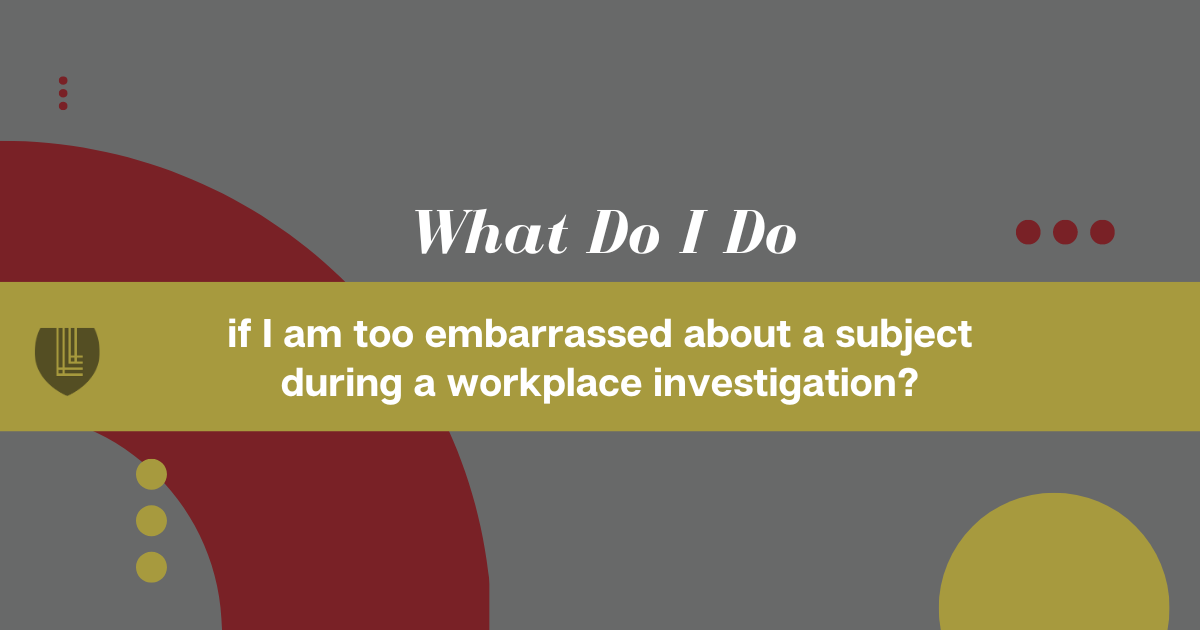Natalie Lynch is your credentialed investigator and licensed attorney, not a vlogger.
What do you do if the person you’re talking to is just mortified by the subject matter, it’s just too embarrassing?
Sometimes, this comes up with incidents that involve sexuality – a lot of times. But it could also come up with somebody’s personal credentialing or their career, like if they’re a little embarrassed of their slow career progress, or their family, or something like that.
It is your job as an investigator to make them feel comfortable. And the crux of the parts that are embarrassing are probably not the crux of their employment, but they may be the crux to some workplace wrongdoing.
And so, if it’s a sexual issue, it can be hard to say things like, “Did he touch your penis? What part of your penis did he touch you on?” Things like that. It can be really hard for somebody to talk about stuff like that, especially if it’s a sexuality issue, and you’re talking to a man. We have all this cultural stigma around masculinity, and it can be so hard. But it is your job, as an investigator, to make those people feel comfortable.
And as icky as clinical words can feel sometimes, reverting back to those clinical terms and telling people that you just need to understand what happened so that you can go on with your investigation – and prove the veracity of the stories that are being told – so that the employer can make the best decisions and keep everybody safe. “I don’t really care about your penis. I care about workplace safety.” Things like that.
You got to find your style. And some of that comes with time, and some of that is based on your demeanor. But at the end of the day, it really is your obligation, as the investigator to engage with that other embarrassed person about whatever they’re embarrassed about and help them break through that.
